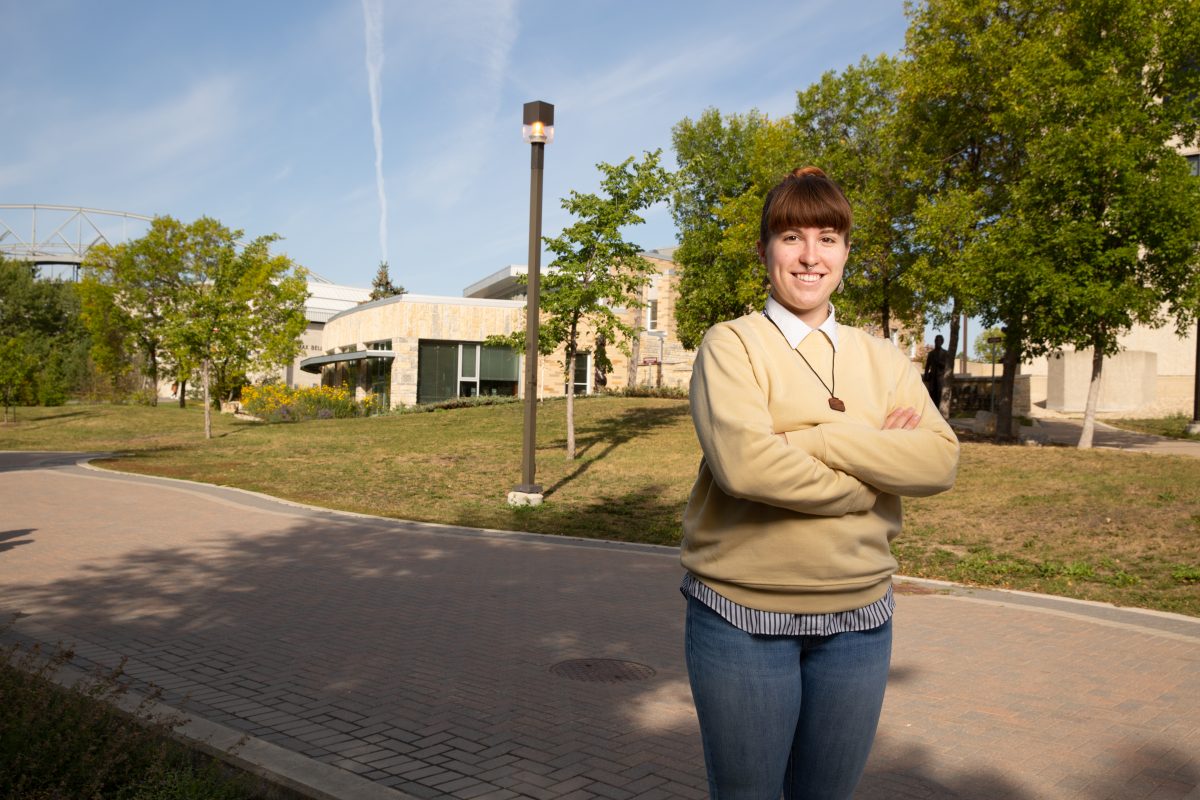
Vanier Scholar examines strategies for curbing racism
Iloradanon Efimoff remembers standing up for siblings, cousins, and friends on the sidelines of her school playgrounds in British Columbia. This moral compass grew stronger as she got older. While completing her master’s in applied social psychology at the University of Saskatchewan, she made the school newspaper—The Sheaf—for speaking up. A main cause: demanding the creation of an Indigenous Students’ Union.
Now, Efimoff prepares to come to the University of Manitoba as a Vanier Scholar. The most prestigious scholarship in Canada, it recognizes students who demonstrate leadership skills and a high standard of scholarly achievement.
Studying under her advisor, professor Katherine Starzyk in psychology, Efimoff’s PhD will probe a dauntingly large question crucial to Canada’s reconciliation efforts: How can we teach people to be less racist towards Indigenous people in Canada?
The Truth and Reconciliation Commission of Canada, and others, declare education a priority in achieving reconciliation, but what sort of education is needed, and for whom?
“People with different beliefs express racism differently. For example, there is overt and covert racism. So different strategies will likely work with different people depending on their personality characteristics, or their experiences,” Efimoff says.
“There’s not a lot of empirically-founded evidence on what is effective in altering people’s attitudes towards Indigenous people in Canada.”
Efimoff will develop an experiment that weeds out confounding variables to find out what is effective and what is not in altering people’s views. As populations vary by extraordinary degrees, she will focus on a specific one made blessedly available to researchers like herself: undergraduate university students.
As a kid she had passing fantasies of becoming an acrobat and astronaut, but when she discovered psychology she found her calling. Her master’s thesis explored intragroup conflict—the attitudes and perceptions towards White-presenting Indigenous people (Indigenous people who look White but are ethnically Indigenous). Efimoff describes herself as looking more White than Indigenous; she is both Haida and European settler, and identifies strongly with her Haida roots.
“I feel I have always had a social justice orientation, with how I grew up and how my family raised me—just stand up for what you think is right and to stick to your principles. So that led me to racism as a topic because it’s something I see as damaging within my own community,” she says.
“It’s definitely personal and it definitely feels like a big responsibility, but I’m keeping in mind that this is one project. This isn’t going to solve racism in Canada but it is potentially going to do some good.”
In 10 years, 26 U of M students have received Vanier scholarships, including Efimoff and fellow 2018 recipient Taylor Morriseau.
“These students are remarkably intelligent and driven. And they are bravely probing some large questions, like racism. We are very grateful and fortunate that they are enriching our community with their ideas and leadership,” said Todd Mondor, Vice-Provost, Graduate Education and Dean, Faculty of Graduate Studies, at the University of Manitoba. “We are very proud they are joining our academic family.”
ABOUT VANIER SCHOLARSHIPS
The scholarships are administered by Canada’s three federal granting agencies: the Canadian Institutes of Health Research; the Natural Sciences and Engineering Research Council of Canada; and the Social Sciences and Humanities Research Council.
The Vanier program honours distinguished Canadian soldier and diplomat Major-General the Right Honourable Georges Philias Vanier (1888-1967), who served as Governor General of Canada from 1959 to 1967.
Research at the University of Manitoba is partially supported by funding from the Government of Canada Research Support Fund.






